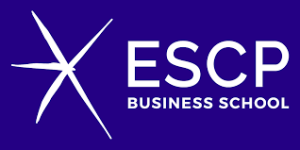Financial modeling is indispensable in making decisions in all industries, particularly in finance. And financial modeling has become an inescapable part of the professional toolbox for those striving to make it in France, where it’s the hub of global finance and business. Financial modeling is employed to determine the potential risks and returns of an investment decision, forecast future financial trends, and evaluate the performance of a business. The major focus of this article will be on financial modeling in France, the career opportunities it provides, and some of the best financial modeling courses in France.

What is Financial Modeling?
Financial modeling is the process of representing a real-world financial situation using a mathematical form. It is a tool for decision-making by simulating the performance of financial assets, businesses or projects within various scenarios.
The core of financial modeling involves using historical data, market trends and assumptions to forecast future financial outcomes. This is for helping stakeholders understand model risks, opportunities and the overall feasibility of their strategies.
Financial models are essential to corporate and investment-related activities like budgeting, valuation, capital raising or mergers and acquisitions. Look at a startup, for example, which might use a financial model of revenue growth over five years, to help format investor presentations.
Likewise, an organisation could use financial modeling to figure out the most effective way for it to divvy up its resources over its divisions. Often, financial models are constructed using tools such as Microsoft Excel, Python or R, which are much more advanced for more complicated tasks.
They are dealing with the main parts, for instance, income statement, balance sheet, cash flow statement, and sensitivity analysis. From banking to real estate, healthcare to technology, it’s an important skill across industries for finance professionals as well as entrepreneurs.
Together, these are all the things that make up a complete picture of what a financial entity is and what its current and future state is. In a world of a rising global economy, without financial modeling, decision-making is not precise and not clear.
Importance of Financial Modeling in France
Financial Modeling has an essential role in shaping France’s economic landscape. Financial modeling provides valuable insights into making strategic decisions for both private and public sectors in one of Europe’s biggest economies. This tool helps businesses to test market conditions, predict trends, and build solid financial strategies.
Financial models are used to evaluate the investment opportunities in industries such as technology, manufacturing, fashion and banking in France. For example, firms in Paris, the country’s financial hub, are using models to make decisions regarding mergers and acquisitions and risk management.
As France has turned its attention to increased emphasis on sustainability, modeling has also come to the forefront financially. Accurate forecasting is required for green financing and environmental projects to allocate funds efficiently and satisfy climate goals. Moreover, financial models play an important role in obtaining funding for startups and innovation-driven firms as they compete in a dynamic market.
Financial modeling’ is not limited to the private sector. These tools are used by government agencies in France for performing public sector budgeting and infrastructure planning as well as to formulate economic policy. They help to judge the feasibility and consequence of major undertakings, for example, transportation systems and urban development.
Benefits of Financial Modeling
The most important advantage is the possibility to comprehend and process the complex financial data that is dominating France’s finance and banking sphere. Professionals can become masters of financial modeling by which they can confidently project revenues, expenses and profitability to allow for competitive advantage in European and global markets for the businesses.
One other advantage is career advancement. Employers in France are very much on the lookout for the right kinds of financial modeling jobs, particularly in industries such as luxury goods, energy, technology and consulting.
Experts in this field usually also have better job opportunities and salaries. For entrepreneurs and startups, financial modeling is a necessary component to raise funding for investors or to make a sustainable business plan, but it is not the only methodology they use for pitching their ideas to investors.
French Tech has given shape to France’s startup ecosystem and finances the innovation organised and structured. Financial modeling also enables the development of France’s greening and green finance.
Financial models drive up the financial cost of renewable energy projects, whether estimating it or developing carbon-neutral strategies. And finally, financial modeling courses in France are a bridge between the theory learned and the practice of the financial day job. It links academic ideas to real-world business situations, core to French culture and the education system.
Get details on Our Advanced Financial Modelling Course here.
| Benefit | Description |
| Career Opportunities | Opportunities in roles like Financial Analyst, Investment Banker, and Corporate Strategist. |
| Skill Enhancement | Develops advanced financial analysis, forecasting, and valuation skills. |
| Industry-relevant knowledge | Focuses on practical applications in sectors like banking, asset management, and finance. |
| Global Recognition | Adds credibility to your profile in international financial markets. |
| Adaptability to Trends | Covers ESG factors, sustainable investments, and emerging financial trends. |
| Networking Opportunities | Enable connections with industry professionals and peers. |
| Practical Learning | Includes hands-on projects, case studies, and real-world applications. |
| Flexible Learning Options | Available online and offline to suit working professionals and students. |
| Increased Decision-Making Abilities | Equips professionals with tools to make informed business and investment decisions. |
| High Return on Investment | Enhances career growth and earning potential in the financial sector. |
Financial Modeling Applications in France
- Business Planning and Forecasting- Financial modeling is used by companies in France for strategic planning, evaluating market potentials and also predicting future performance. We particularly need this application because multinational corporations and also startups in different sectors of industry, such as energy, retail and technology.
- Mergers and Acquisitions (M&A)- The activities of M&A are supported by the financial modeling that evaluates the value of the target companies, predict synergy and performs scenario analysis. Accurate models are critical for deal structuring and negotiations for French investment banks and advisory firms.
- Venture capital and Startups- France’s increasingly busy startup ecosystem relies on financial models to present to investors, pocket the cash, and strategise expansion. Models are used by venture capitalists to net the chances of investments in early-stage companies.
- Projects in the Area of Infrastructure and Real-Estate- Financial modeling is fundamental in preparing for big projects such as estate developments and public infrastructure. By helping project developers and financiers in France to determine the feasibility, optimise funding structures and assess risk. It also improves the investment case and reduces risk in the market for those interested in investing in renewable energy projects.
- Risk Management– Financial models help a company to predict and counterbalance risks from currency fluctuations, interest rates and fluctuations in the market. Such importance demands, in particular, from multinational businesses having French and overseas operations.
- Green Finance and Sustainable Finance- Being that France focuses on environmental sustainability, financial modeling allows for the examination of the feasibility of renewable energy projects and carbon offset programs. It is consistent with government policy to encourage sustainable development.
- Corporate Valuation- Financial modeling is used by businesses both to internally and externally value the business through precise pricing in acquisitions, equity raisings and partnerships. These models are important weapons in France’s business arena.
- Regulatory Compliance- Financial models are used to support firms to adhere to French and EU regulations with their accurate calculations of tax planning, reporting standards and financial disclosure.
- Public Policy and Government Initiatives- For all government spending, big or small, financial modeling is used in France to allocate budgets, measure the economic impact of policy changes and design ambitious public projects like transportation infrastructure.
The applications show the critical role that financial modeling plays in determining decisions throughout France’s economy. Now let’s take a look at the top financial modeling institutes in France.
List of Top 10 Financial Modeling Courses in France
| Institutes | Mode | Module Specific Trainers | Mock Interview |
| IIM SKILLS | Online | ✅ | ✅ |
| ESCP Business School | Offline | ✅ | ❌ |
| EDHEC Business School | Offline | ✅ | ❌ |
| SKEMA Business School | Offline | ✅ | ❌ |
| Coursera | Online | ❌ | ❌ |
| HEC Paris | Offline | ✅ | ❌ |
| Corporate Finance Institute | Online | ✅ | ✅ |
| EduPristine | Online | ✅ | ✅ |
| LinkedIn Learning | Online | ❌ | ❌ |
| EMLYON Business School | Offline | ✅ | ❌ |
| Udemy | Online | ✅ | ❌ |
1. IIM SKILLS

One of the most renowned online education providers of financial modeling courses in France is IIM SKILLS. This course aims to equip students with the skills and knowledge to build robust financial models that are employed in financial sectors, investment banking, corporate finance and equity research.

You will learn Excel-based financial modeling, and how to create your cash flow statements, profit and loss statements and balance sheets from scratch.
In addition, the course explores more advanced topics like DCF analysis, mergers and acquisitions (M&A) modeling and fundamental forecasting.
They offer the course through live interactive sessions with interactive industry experts, offering real-time feedback and discussions. In addition, IIM SKILLS offers assignments and case studies to participants to reaffirm learnings from the subject matter.

Lifetime access to course materials and job placement support after program completion are among the great benefits of enrolling in their financial modeling institutes in France.
| Course | Duration | Fees |
| Financial Modeling Master Course: Self-Paced Course | Self-paced | EUR 395.62 |
| Financial Modeling Master Course: Job Assist Program | 4 months | EUR 660.25 |
| Financial Modeling Master Course: Job Guarantee Program | 4 months | EUR 1983.41 |
Contact Information:
| Phone | +91 9580740740 |
| [email protected] | |
| Website | iimskills.com |
We recommend reading the best Financial Modeling Courses in Latvia to elevate your career.
2. ESCP Business School

Located in Europe, ESCP Business School is one of the most known financial modeling institutions in France. It is for training professionals in high-level finance roles offering specialized financial modeling and valuation courses.
This course provides a detailed explanation of financial modeling starting from theoretical explanations to practical implementation in the finance industry.
The financial modeling courses in France at ESCP are diversified to focus on key areas including valuation modeling, financial statement analysis, and the application of various financial models in decision-making.
Moreover, students will work on real-world case studies focusing on the strategic use of financial models for investment analysis, budgeting and financial forecasting. The integration of a global perspective into the learning experience is one of the main advantages of taking the course at ESCP.
The school’s strong European and international ties give students access to a huge network of alumni, professionals and career opportunities throughout the world. Students are also gaining exposure to current trends and technological innovation in finance, apart from rigorous academic learning.
| Course | Duration | Fees |
| MSc in Finance | 2 years | EUR 27,900 |
Explore the top Financial Modeling Courses in Sydney with placement assistance.

3. EDHEC Business School
![]()
EDHEC Business School’s financial modeling courses in France teach advanced theory and practical, hands-on learning. The purpose of the curriculum is to prepare those individuals who are seeking mastery in the techniques of financial modeling and valuation, including financial statement modeling, risk analysis, and forecasting.
What differentiates this course from others is that it is concerned with sustainable finance and environmental, social, and governance (ESG) factors. This aspect is important because sustainability in finance is growing.
Another unique feature of financial modeling institutes in France is that students can freely choose the blend of online and in-person learning experiences.
Blended allows for flexibility but delivers identical depth of knowledge, as well as networking opportunities. Participants also gain access to industry-standard tools and financial software, which improves their grasp and utilization of advanced techniques through financial modeling.
| Course | Duration | Fees |
| MSc in Finance | 1-2 years | EUR 17,500 – EUR 41,500 |
Find out the best Financial Modeling Courses in Melbourne for your career enhancement.
4. SKEMA Business School

SKEMA Business School as a topic will train and teach students advanced financial modeling courses in France as a part of corporate finance. It covers venture capital financing, mergers and acquisitions (M&A) and advanced Excel modeling techniques.
The curriculum prepares students to develop high-level models for financial analysis, strategic planning and risk management. If you would like to enter fields such as private equity, corporate finance and business consulting, SKEMA’s financial modeling courses in France are particularly attractive.
With a focus on hands-on models and case studies with live projects, the program emphasizes the practical application of the models that the participants learn in a real-world setting.
Additionally, SKEMA’s global alumni and industry network give students wide access to a global career when they finish the course.
| Course | Duration | Fees |
| Master in Finance | 2 years | EUR 47,200 |

Here is your complete guide to the Top Financial Modeling Courses in Hyderabad
5. Coursera

Financial Modeling courses in France on Coursera give students a solid base in theory and practical knowledge. It features shortcuts to building financial models, from basic financial statement analysis to more advanced areas, like capital budgeting, valuation and forecasting.
This one is designed to give the students flexibility in learning while they also have their personal and professional commitments. The course is perfect for financial professionals to up their skills and acquires formal certification in financial modeling.
After completion, you get a certificate which has considerable value in the finance industry. The course content consists of video lectures, case studies and practice of the application of financial models both at a technical and strategic level to ensure that students completely understand financial models.
| Course | Duration | Fees |
| Business and Financial Modeling | Self-paced | EUR 60/month |
| Finance and Quantitative Modeling for Analysts | Self-paced | EUR 60/ month |
Here’s a guide to the top Financial Modeling Courses in Malaysia with placement support.
6. HEC Paris

Heads and Center of Innovation (HEC) in Paris is among one of the world’s leading business schools. It provides specialized financial modeling courses in France for professionals seeking to enhance their skills in finance and decision-making.
This course analyzes key advanced financial modeling issues in corporate finance, investment banking and strategic management. Financial forecasting, discounted cash flow (DCF) analysis and sensitivity analysis are emphasized by the curriculum.
HEC Paris’s program is very well known for its academic standards and for including Python and Excel in modelling. The school also has an incredible professional network that allows students to tap into the network during their studies and beyond that to land many career opportunities.
Their financial modeling institutes in France are especially for those who want finance roles which need strong decision-making and quantitative analysis skills.
| Course | Duration | Fees |
| Master in Finance | 2 years | EUR 43,800 |

7. Corporate Finance Institute

Corporate Finance Institute offers specialized financial modeling courses in France focused heavily on Excel modeling and the practicals involved with it. The course teaches the basics of financial modelling and flows to more advanced DCF modeling and LBO analysis.
The major draw of this program is that preparation involves an emphasis on Excel proficiency, which is an essential resource in financial modeling.
Small batch-sized learning is provided by Corporate Finance Institute to ensure that students have an extremely personalized and custom learning experience. The course is tailored to preparing students for the investment banking, private equity, and corporate finance worlds.
| Course | Duration | Fees |
| Specialized Excel Modeling Course | Not Available | Not Available |
Eager to know about the extensive Financial Modeling Courses in London with placement support? Here is a guide.
8. LinkedIn Learning
![]()
Financial Modeling Foundations from LinkedIn Learning is a course that sets a solid fundamental understanding of basic financial modeling. Their financial modeling courses in France are ideal for beginners as it takes them through key topics such as financial statement analysis, model building in Excel, basic forecasting, and so much more.
The course is driven by experts in the field and is self-paced, meaning that you can go at a pace that’s comfortable for you. If you’re a professional beginner seeking to become acquainted with financial modeling, then this course is for you.
By joining LinkedIn Learning, you gain flexibility, and upon completion, you’ll get a certificate of achievement that you can show in your LinkedIn profile.
| Course | Duration | Fees |
| Financial Modeling and Forecasting Financial Statements | Self-Paced | EUR 30/ Month |

9. EMLYON Business School
Financial analysis and modeling is a course offered by EMLYON Business School combining academic theory with practical real-world applications. Their financial modeling courses in France build financial models for strategic decision-making based on financial statement analysis, capital budgeting and risk management.
Students will develop the skills in using financial tools like Excel to develop dynamic financial models.
The EMLYON program is designed for people who are already working in the financial sector and want to have new skills to improve their positions.
The program also introduces students to industry trends, including the growing importance of sustainable finance in the current global finance context.
| Course | Duration | Fees |
| Financial Analysis | 2 years | Not Available |
Here is an extensive guide to the top-ranked Financial Modeling Courses in Auckland. Read and explore in-depth.
10. Udemy
![]()
If you want to learn financial modeling in your own time and at your own pace, then Udemy’s Financial Modeling and Valuation course is a good option.
Their financial modeling courses in France focus on all the important areas and include how to build your financial models from scratch, how to perform scenario analyses, and how to execute valuation using DCF and comparable company analysis.
Taking this course has the advantage of its affordability and flexibility. The course materials are available for lifetime access to students, so they can come back to review the lessons, as often as they choose.
The course also includes downloadable Excel templates, which students can use to practice building models of their own.
That’s why it’s a practical and viable solution for those that are new to financial modeling.
Their financial modeling institutes in France each student and professional with important skills in financial modeling and are highly sought after in the industry. You will find that there is a course with self-paced options to suit your needs.
Check out IIM SKILLS for more professional courses and programs to help you find your career path.
1. In France, why is Financial Modeling important?
France has a big presence in sectors such as investment banking, asset management and corporate finance, as a result, financial modeling is critical to understanding these industries. Financial models are used by professionals to assess investment opportunities, financial viability of businesses and financial plans and prepare forecasts of corporate performance. In finance, there is a growing need for detailed analysis in decision making and regulatory compliance makes financial modeling a must to pursue a career. France’s emphasis on sustainable investments and ESG (Environmental, Social, and Governance) factors also necessitates even more importance placed on financial modeling for long-term risk and opportunity evaluation.
2. What career opportunities does a financial modeling professional have in France?
The need for professionals with expertise in financial modeling exists in all financial sectors. These include investment banks, corporate finance departments, and consulting companies. The roles include Financial Analyst, Investment Banker, Risk Manager, Corporate Strategist and Financial Planner. Roles in M&A, equity research and asset management, also require financial modeling. Being in the global field of finance, professionals can work for multinational companies, as well as personal and venture capital firms for innovations.
3. How does the curriculum of financial modeling courses in France look like?
A typical curriculum for financial modeling institutes in France includes a broad range of basic and advanced content in financial analysis. The basics of Excel modeling, financial statements analysis, budgeting, forecasting, and discounted cash flow (DCF) models are within these. Topics for advanced modules include valuation models, leveraged buyouts (LBO), mergers and acquisitions (M&A) modeling, as well as industry-specific models such as project finance or estate modeling. In addition, many programs include case studies and hands-on projects intended for the practical application of the skills learned.
4. Is it possible to learn online Financial Modeling Courses in France?
Yes, there are several online financial modeling institutes in France which have introductory and more advanced courses. Working professionals will find online courses more flexible in terms of learning pace as well as location. Students can learn in their own time on platforms like IIM SKILLS, Coursera and Udemy. These courses have live sessions, pre-recorded lectures, assignments and interactive sessions to give them practical experience and prepare them for real-world challenges. Furthermore, the global instructors and industry experts can be accessed online.
Conclusion
To conclude, financial modeling skills are a must for people who want to grow in the investment and corporate sectors. This is also the time when the need for skilled financial modelers to enhance the growth and demand for careers is undoubtedly increasing. There is a range of career pathways across sectors. Anyone who wishes to land a job as a financial modeler needs to enrol in one of the financial modeling institutes in France. This will instil him or her with the necessary knowledge and expertise to be successful in the job market. Financial modeling courses in France are certainly an investment that will help in career progression and support the growth of the financial sector.


